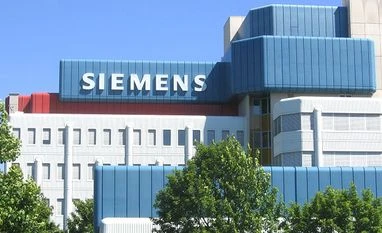Siemens last week announced its plan to sell the mechanical drives (MD) business to a subsidiary of the parent firm. The decision has attracted criticism from both analysts and proxy advisory firms.
“Siemens India short-changing minority shareholders again. The slump sale of the mechanical drives business at Rs 440 crore,” stated a tweet by Ingovern, a proxy advisory firm, on Monday.
Last week, Siemens said its board had approved the sale of its MD business to Flender Drives, a subsidiary of Flender GmbH, which, in turn, is a subsidiary of Siemens AG. The deal was approved for a consideration of Rs 440 crore.
In its tweet, Ingovern argued against the valuation of the deal, stating the MD business accounted for 5 per cent of net-worth and income from operations, and contributed Rs 684 crore to the revenue. “We are questioning the valuation of Rs 440 crore, which is less than 1 per cent of the Rs 42,000-crore market capitalisation,” said Shriram Subramanian, MD and founder of InGovern Research Services, a proxy advisory firm.
Siemens’ management defended the decision, stating that while the rest of its business clocks 9-10 per cent profit, profitability from the MD business is lower. In an earlier statement, Siemens had said that in FY19, the MD business in India had reported an operating loss of Rs 55.3 crore.
Sunil Mathur, managing director and chief executive officer of the company, in a call with Business Standard on Tuesday, said: “The value was arrived through an external agency, which valued the business at Rs 104 crore through the discounted cash flow (DCF) method and at Rs 439 crore using the net asset value (NAV) method.”
Comparing a loss-making or low-profit business to the valuation of the remaining high profitability business, in terms of valuation, was unfair, he added.
Ingovern is not the only firm raising apprehensions. Analysts with JPMorgan, in a note, said they did not agree with the management’s rationale. The report said: “Siemens had a cash and bank balance of Rs 4,900 crore as of March, so we do not agree with the rationale of substantial capex requirement. Siemens last week in its press statement said potential growth in the MD business will require substantial capex and, moreover, there are no synergies with the existing businesses of Siemens.” The report added that the firm was losing part of its full services portfolio in this transaction, and was at a steep discount to Siemens.
Mathur, in Tuesday’s interview, said: “To turn the MD business around, I need to invest substantially technology-wise. Cash is not the problem, but should I invest my capex in the rest of the business, which gives a 9-10 per cent profit, or in a low-profit business?” He added: “The for-sale business is mechanical... Siemens is now all about electrical and moving towards digital.”
Shriram from Ingovern also questioned Siemens’ decision to sell the asset to the parent-subsidiary. “The board of directors is complicit in short-changing minority shareholders when Siemens either sells off or acquires a business unit from any unlisted 100 per cent subsidiary of the parent Siemens AG since 2012. Valuations are always against the interests of minority shareholders,” he said.
Asked if other buyers sought the asset too, Mathur said: “The parent company is ready to pay me the current value, a third party will turn around and ask why should I pay you so much (when the DCF is lower.)”
This is not the first time that Siemens board has approved the sale of its MD business to a parent-subsidiary. According to Siemens' FY19 annual report, in a meeting held in August last year, the company decided not to pursue the earlier approved proposal of divesting the MD business to Siemens AG or its subsidiary.
“The parent company had approached us earlier for the purchase of this business, however, given no price offer was made after that, we later decided to not pursue. The parent company approached us again four to five months back, a proposal the Siemens board then considered and decided to seek value from an external agency,” Mathur added.
Unlock 30+ premium stories daily hand-picked by our editors, across devices on browser and app.
Pick your 5 favourite companies, get a daily email with all news updates on them.
Full access to our intuitive epaper - clip, save, share articles from any device; newspaper archives from 2006.
Preferential invites to Business Standard events.
Curated newsletters on markets, personal finance, policy & politics, start-ups, technology, and more.
)